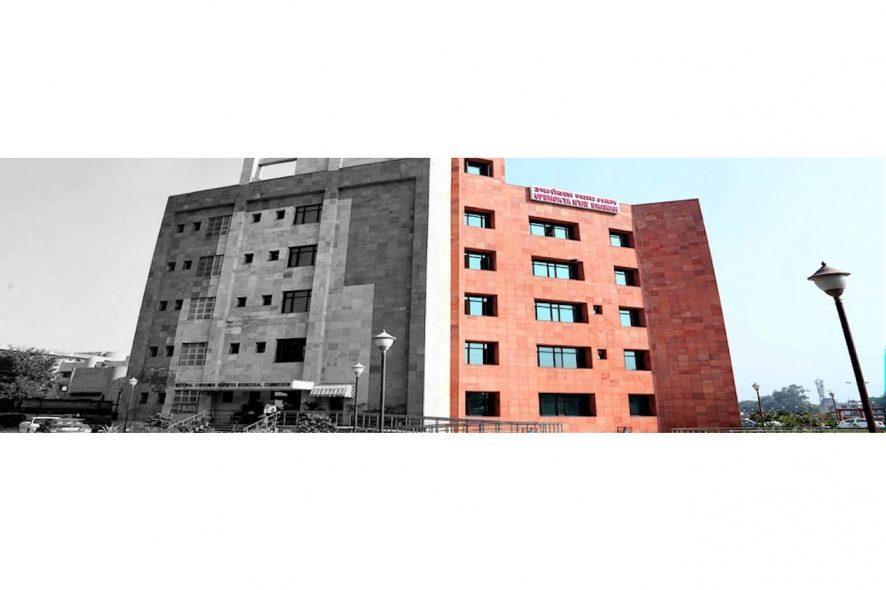National Consumer Redressal Commission (NCDRC): The Bench of R.K. Agarwal (President and V.K. Jain and M. Shreesha, Members, while taking into consideration a batch of petitions and further referring to several decisions of the Supreme Court, reached to the conclusions that,
“Coaching Classes cannot fall within the definition of ‘Education Institutions’.”
“Any defect or deficiency or unfair trade practice pertaining to a service provider like ‘Coaching Centres’ does not fall within the jurisdiction of the Consumer Fora.”
Facts in the present case are in respect to deficiency of services by an educational institution that is a Dental College for admitting students when it was neither affiliated with the university nor recognized by the Dental Council of India.
Counsel appearing for the complainants stated that the facts in Buddhist Mission Dental College and Hospital v. Bhupesh Khurana, (2009) 4 SCC 473 relate to deficiency of service on account of non-affiliation and that it does not fall within any deficiency rendered during the ‘Course of Education’ being imparted ‘Post Admission’.
OP University has indulged in deficiency of service and unfair trade practice.
Contentions
OPs Counsel placed reliance on Supreme Court’s decision in P.T. Koshy v. Ellen Charitable Trust, 2012 (3) CPC 615 (SC), and stated that students are not ‘Consumers’ and ‘Education’ is not a commodity and the Educational Institutions are not rendering ‘Service’.
Counsel appearing for the Complainant’s while referred to P. Sreenivasulu v. P.J. Alexander, wherein it was held that Educational Institutions would come within the purview of the Consumer Protection Act, 1986 and that Education is a ‘service’.
Analysis and Decision
Commission addressed the ratio laid down by the Supreme Court in a catena of Judgments with respect to ‘Education’ and ‘Educational Services’ vis-a-vis Consumer Protection Act, 1986.
Bihar School Examination Board v. Suresh Prasad Sinha, (2009) 8 SCC 483,
“…Any dispute relating to fault in holding of examination and non-declaration of result by an examinee does not fall within the purview of the Consumer Protection Act, 1986.”
Maharshi Dayanand University v. Surjeet Kaur, (2010) 11 SCC 159,
“…Supreme Court in the above-stated case examined in detail the jurisdiction of the Consumer Fora to entertain a Complaint with respect to deficiency of service by Educational Institutions.”
While noting the contention that Supreme Court clearly culls down the principles and has emphatically laid down that student is not a consumer and educational institutions are not providing any ‘Service’, Supreme Court’s decision in P.T. Koshy v. Ellen Charitable Trust, 2012 (3) CPC 615 (SC) was referred to wherein it was held that,
“…Educational Institutions are not providing any kind of service, therefore, in matter of admission, fees, etc., there cannot be a kind of service, therefore, in matter of admission, fee, etc., there cannot be a question of deficiency of service. Such matters cannot be entertained by the Consumer Forum under the Consumer Protection Act, 1986.”
Counsel for the Complainants contended that the ratio of the order has to be interpreted in the sense that it was applicable only to cases which involve ‘Core Education’ services and not all activities which relate to Educational Institutions and that both Bihar School Examination Board v. Suresh Prasad Sinha, (2009) 8 SCC 483 and Maharshi Dayanand University v. Surjeet Kaur (2010) 11 SCC 159, refer to conference of a degree and conduction of an examination, which do not sum up the entire gamut of “Education”.
Unni Krishnan, J.P. v. State of A.P., (1993) 1 SCC 645,
“…Education has never been a commerce in this country and that establishing an Educational Institution can neither be a trade or business nor can it be a profession within the meaning of Article 19 (1)(g), it was held that “Education” in its truest aspect is more a mean and a vocation rather than a profession or trade or business.”
Commission relying on the in Amar Singh Yadav v. Shanta Devi, AIR 1987 Patna 191, wherein it was held that,
“…while deciding the Law of Precedence has observed that when there is a direct conflict between two decisions of the Supreme Court of co-equal Bench, the subordinate Court must follow the judgments which states the law more elaborately and accurately and that the question whether the decision is earlier or later is not material. In the instant case in Maharishi Dayanand University Case (Supra) the Hon’ble Supreme Court had discussed the law elaborately.”
Thus, the Commission stated that ratio laid down in the last judgment that is Amar Singh Yadav v. Shanta Devi, AIR 1987 Patna 191 has to be followed. It is significant to note here that the ratio in Maharshi Dayanand University v. Surjeet Kaur (2010) 11 SCC 159, P.T. Koshy v. Ellen Charitable Trust, 2012 (3) CPC 615 (SC), Prof. K. K. Ramachandran (Supra) and Anupama College of Engineering (Supra) does not address to the aspect of what comprises ‘Core Education’ and whether all activities related to Education/ Educational institutions would be excluded from the purview of the Act.
In view of the above discussion, consumer complaints were dismissed. [Manu Solanki v. Vinayak Mission University, 2020 SCC OnLine NCDRC 7, decided on 20-01-2020]







Coaching classes are competitive in nature. They compete with other coaching classes to deliver better education and better student achievements, whereas institutions do not compete for the education they are competitive in terms of enrollments, and spread. Thank you for sharing such informative information. Keep sharing.